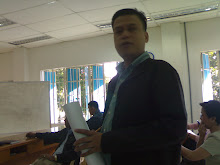Responding to President Gloria Macapagal-Arroyo's appeal, oil firms in the country, led by industry leader and partly government-owned Petron Corp., cut the price of diesel by P1.50 a liter effective at 12:01 a.m. Monday.
The rollback came less than 48 hours after the oil firms raised the price of diesel by P3 a liter, fueling the ire of public transport groups that threatened to go on a massive strike. It was the single biggest increase to date in the price of diesel, which is used by public buses and jeepneys, and the 22nd adjustment since January for a total of P24.
At a rare Sunday news conference, Press Secretary Jesus Dureza announced the cut in the price of diesel, particularly by Petron and Pilipinas Shell Petroleum Corp.
Dureza said Ms Arroyo had instructed Executive Secretary Eduardo Ermita, "in coordination with Energy Secretary Angelo Reyes," to appeal to these two main players in the oil industry for a rollback in the diesel price.
"And we are happy to announce that there was a positive response from the oil companies," Dureza told reporters.
"By midnight Sunday, which will effectively be Monday, a rollback of P1.50 for diesel fuel will be made effective."
It was the third cut in the price of diesel since February but prices have increased 19 times this year. Diesel will now cost between P55.98 and P57.97 a liter.
Both the oil firms and transport groups were unhappy with the price cut for different reasons.
Disappointing
Malacañang's "appeal" for oil firms to reduce the price of diesel came as a surprise to oil firms, especially as they were still trying to recover losses from high international crude prices.
"It's definitely very disappointing. We thought we'd only have to recover P2-P3 a liter for diesel, based on June costs. Now we'd have to recover P1.50 more because of the rollback," said an industry executive, who requested anonymity for fear of incurring the wrath of Malacañang.
Based on July costs, the industry would still need to recover another P2.50, on top of the June underrecoveries, the executive said.
"So that's P6-P7 for August--exactly the amount that a value-added tax (VAT) rollback would shave off from the pump prices of diesel," the source added.
Despite the "disappointment," the executive said oil firms could not do anything but submit to the appeal because it was Ms Arroyo herself talking.
"It's Ma'am's order, so we have no choice but to comply," the source said.
Farce
Instead of welcoming the rollback, a militant group called the price reduction a "farce" and an attempt on the part of Ms Arroyo to assuage public outrage.
"It is a calculated political move aimed at defusing public outrage over the nonstop oil price increases and the value-added tax on oil," Bagong Alyansang Makabayan secretary general Renato Reyes Jr. said in a statement.
Reyes said it was not a real rollback because oil companies were merely deferring the collection of their so-called under-recoveries.
"The P1.50 rollback will be recouped by the oil companies in a matter of days, or during their next increase, which is likely five days from now," he said.
The Pagkakaisa ng mga Samahan ng Tsuper at Opereytor Nationwide (Piston) said the rollback was not enough to offset the huge jump in diesel pump prices this year alone.
State of the nation
In a statement, Piston secretary general George San Mateo said Ms Arroyo made the appeal not because she truly cared for the people, but because she wanted to arrest her falling popularity rating.
Reyes said the appeal of Ms Arroyo for a price cut was all for show, in preparation for her State of the Nation Address next week.
"Malacañang will, of course, take credit for the so-called rollback since it desperately wants to score brownie points just before Arroyo delivers her Sona. Ms Arroyo is reeling from plummeting approval ratings due to her regime's inability to control oil prices and lift the VAT on oil," he said.
Dureza said the President's appeal had nothing to do with the latest Social Weather Stations survey that showed Ms Arroyo had become the most unpopular leader in the country since 1986.
"The President, irrespective of whether she's popular or unpopular, will do what is right for the nation," the press secretary said.
In a phone interview, Ermita said that just like everyone, Ms Arroyo was taken aback by the "big leap" in diesel price, prompting her to instruct him to appeal to the oil firms for a price cut.
Ermita said he called up Petron president Nick Alcantara, who was abroad, and then later met with Petron spokesperson Vivian Ruivivar on Saturday. He also spoke to Pilipinas Shell president Edgar Chua.
"We suggested whether they could roll back the price by P1.50 because the P3 increase was really hefty," he said.
Recover losses later
Ermita said he told Shell and Petron officials that maybe they could "find a way later on to recover" their losses due to soaring oil prices worldwide.
He said the two oil firms were "very accommodating" to Ms Arroyo's request and that an elated President told him to thank them.
"It's an appeal from the President. So how can we turn it down considering her concerns on the impact of the rather hefty increase, which was necessary," Ruivivar told reporters by phone at Dureza's news conference in Malacañang.
Asked whether it was only Ms Arroyo's simple appeal that made Petron agree to a rollback, Ruivivar said: "It's a question of moderating the adjustment so in time we will find how...actually to fully recover our cost because we cannot operate at a loss."
Dureza thanked the oil companies for heeding the President's appeal, saying this would "go a long way in cushioning the impact of oil prices on the masses, especially those using diesel fuel."
